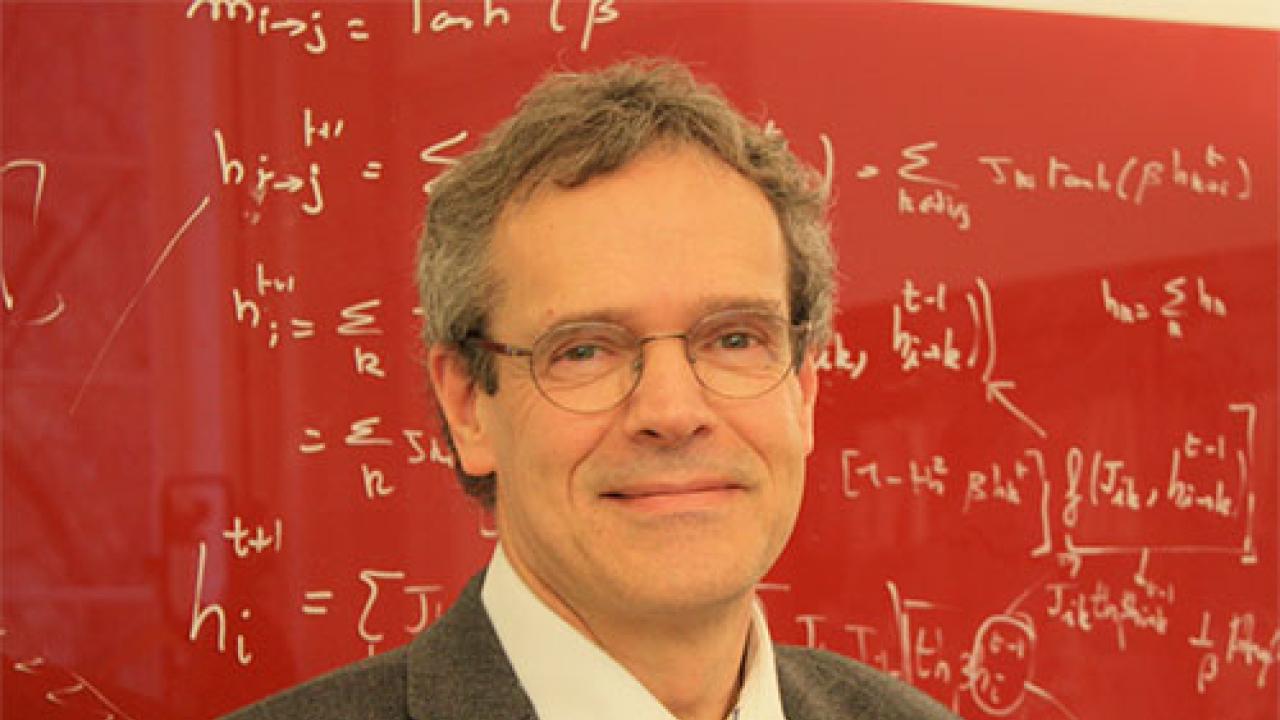
ICTP is pleased to announce that its 2020 Salam Distinguished Lectures Series will feature theoretical physicist Marc Mézard, Director of l’École normale supérieure, Paris, France. Professor Mézard will deliver three lectures on topics ranging from artificial intelligence to statistical physics of inference and machine learning.
The three lectures will take place from 27 to 29 January in ICTP's Budinich Lecture Hall and will be livestreamed as well. Light refreshments will be served afterwards. All are welcome to attend the events.
The lectures will also be livestreamed.
Professor Mézard's main field of research is the statistical physics of disordered systems and its use in various branches of science, including biology, economics and finance, information theory, computer science, statistics, and signal processing. In recent years his research has focused on information processing in neural networks.
The schedule of lectures is as follows:
- 27 January, 16:30: Artificial Intelligence: success, limits, myths & threats: Artificial Intelligence is about to have a dramatic impact on many sectors of human activity. In the last ten years, thanks to the development of machine learning in “deep networks”, we have experienced spectacular breakthroughs in diverse applications such as automatic interpretation of images, speech recognition, consumer profiling, and chess playing. Algorithms are now competing with the best professionals at analyzing skin cancer symptoms or detecting specific anomalies in radiology, and much more is to come. Worrisome perspectives are frequently raised, from massive job destruction to autonomous decision-making “warrior” robots. This talk will open the black box of deep networks and explore how they are programmed to learn from data by themselves. This will allow us to understand their limits, to question whether their achievements have anything to do with “intelligence”, and to reflect on the foundations of scientific intelligence.
- 28 January, 16:30: The spin glass cornucopia: Motivated originally by some anomalies in the magnetic response of some magnetic alloys, spin glass theory has developed in the last 40 years into a vast research field. Apart from providing a theoretical framework for understanding glassy phases in various physical systems, it has also provided a corpus of concepts and methods, like the replica and the cavity method, that have found applications in various other branches of science, where one is interested in emerging properties in systems built from many interacting elementary components: computer science, information theory, economy, biology, etc. This talk will review some of the basic concepts and methods originating from spin glass theory, and present some aspects of their relevance to other fields.
- 29 January, 11:00: Statistical physics of inference and machine learning: A major challenge of contemporary statistical inference is the large-scale limit, where one wants to discover the values of many hidden parameters, using large amount of data. In recent years, ideas from statistical physics of disordered systems, notably the cavity method, have helped to develop new algorithms for important inference problems, ranging from error correcting codes in information theory to compressed sensing, machine learning and generalized linear regression. The talk will review these developments and explain how they can be used, together with the replica method, to identify phase transitions in benchmark statistical ensembles of inference problems.
More details about the lecture are available in ICTP's Scientific Calendar.
The Salam Distinguished Lectures Series receives generous support from the Kuwait Foundation for the Advancement of Sciences (KFAS).
















